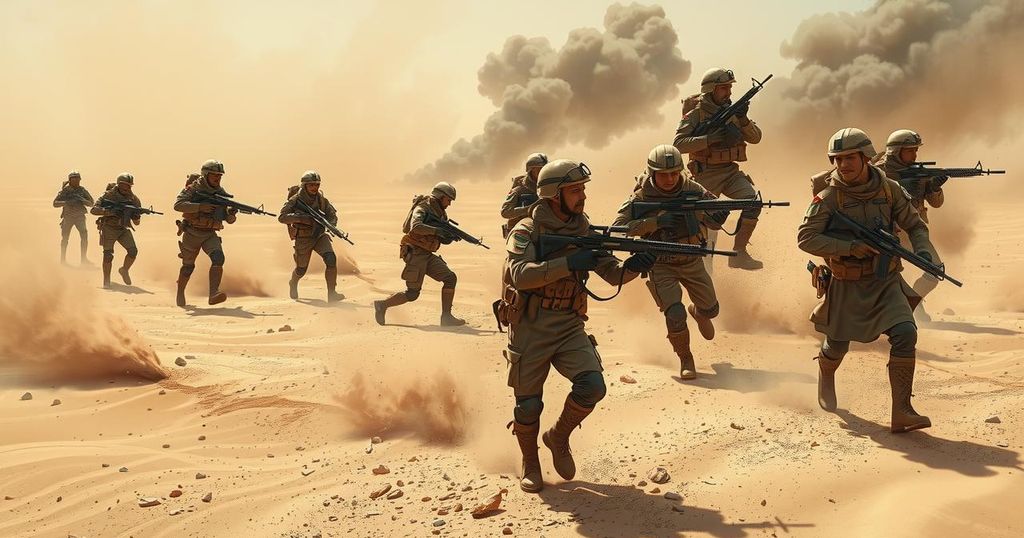Understanding the Ongoing Conflict in Sudan: Key Players and Consequences
The Sudanese army, led by General Burhan, clashes with the RSF, commanded by General Hemedti, in a struggle for power following their joint efforts to oust President Bashir. Amidst allegations of human rights abuses by both factions, the conflict has resulted in significant civilian displacement and international sanctions.
In Sudan, a conflict has erupted primarily between the Sudanese army, led by General Abdel Fattah al-Burhan, and the paramilitary Rapid Support Forces (RSF), which is commanded by General Mohamed Hamdan Dagalo, also known as Hemedti. The longstanding tension ignited after these factions, which previously collaborated to remove President Omar Hassan al-Bashir in 2019, began clashing over interests in a planned political transition.
The Sudanese army boasts superior numbers and heavy weapons, including fighter jets; however, it has historically relied on allied groups for combat, particularly in regions like Darfur. General Burhan has been a significant figure within the army for decades, emerging as a key leader after telling Bashir to resign. Despite gaining some ground in early 2025 with support from drones and foreign allies like Egypt, the army has faced accusations of indiscriminate attacks on civilians, leading to international sanctions against Burhan for prioritizing conflict over peace.
On the other hand, the RSF was initially formed from militia groups, gaining strength particularly during the Darfur conflict. Under the leadership of Hemedti, who transitioned from a camel trader to a powerful military leader, the RSF has become a formidable force with significant control over various territories. Hemedti’s business interests have diversified into numerous sectors, including gold mining. The RSF has demonstrated tactical prowess, adeptly navigating urban landscapes to counter the conventional military strategies of the Sudanese army. However, they too face serious allegations of ethnic violence against civilians in Darfur, which they deny. Notably, the United States has imposed sanctions on Hemedti, citing the RSF’s involvement in genocide.
Both factions have contributed to a humanitarian crisis, displacing millions and reigniting ethnic violence within Sudan. The conflict, characterized by its complexity and deep-rooted historical grievances, continues to pose a severe threat to peace and stability in the region.
In summary, the conflict in Sudan primarily involves a power struggle between the Sudanese army, led by General Burhan, and the Rapid Support Forces under General Hemedti. Both factions, once united in their actions against former President Omar al-Bashir, now engage in deadly clashes driven by competing interests in the ongoing political transition. Allegations of human rights abuses and ethnic violence further complicate the situation, leading to international scrutiny and sanctions against both leaders. The humanitarian impact remains devastating, with millions displaced and ongoing violence threatening the stability of the nation.
Original Source: www.hindustantimes.com




Post Comment